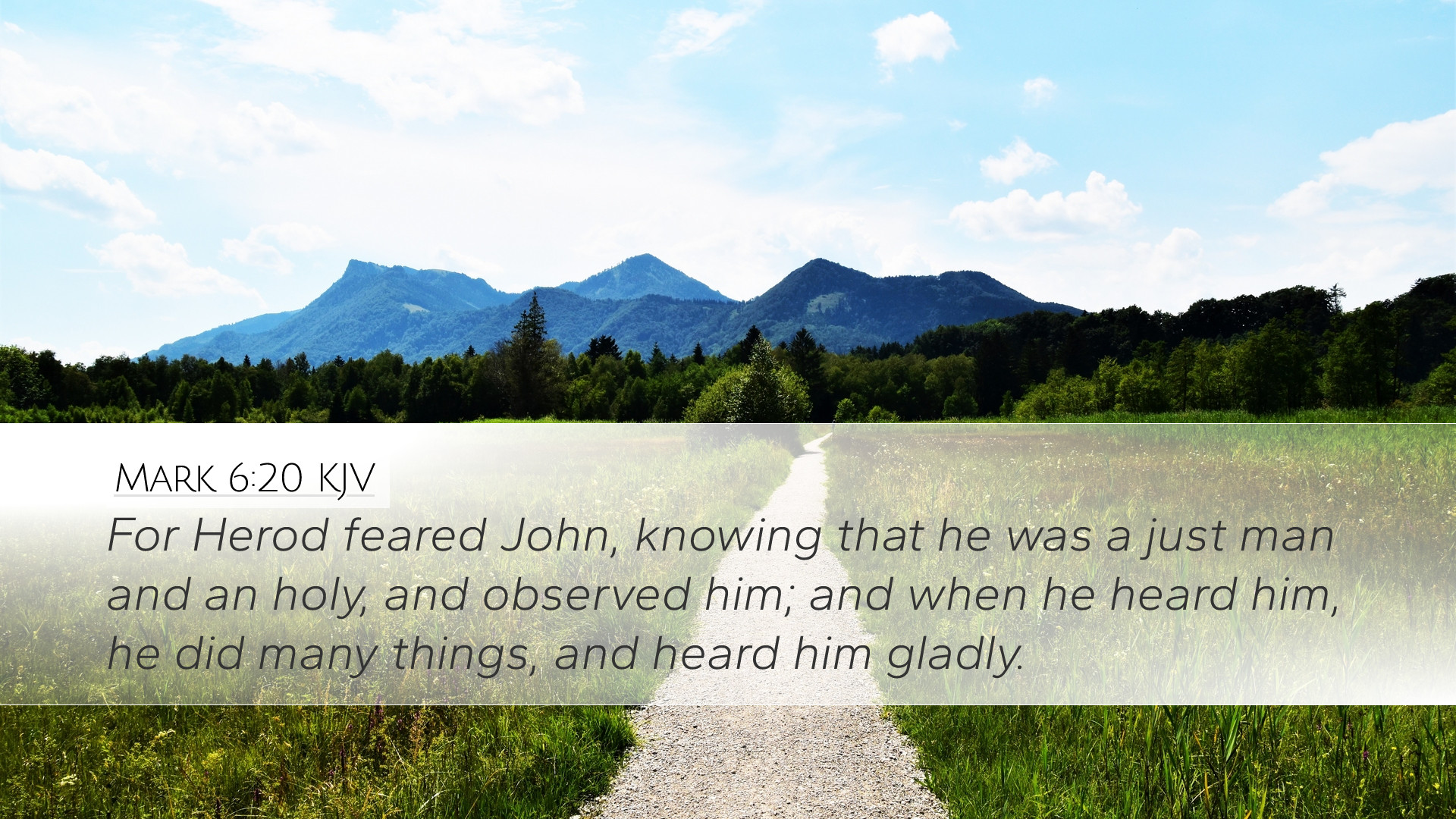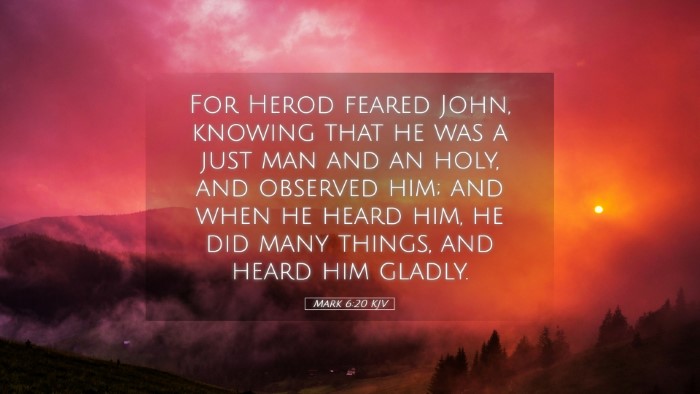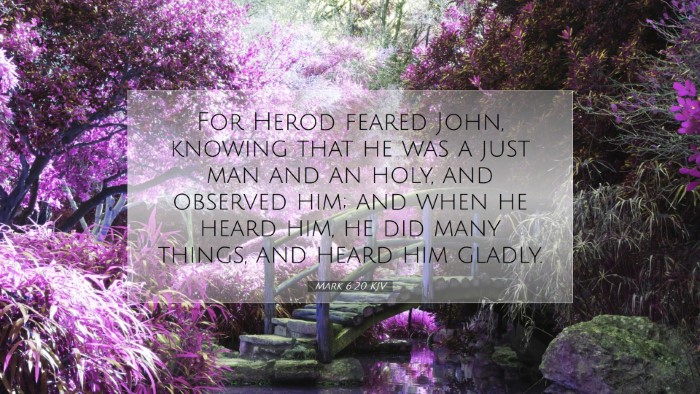Bible Commentary on Mark 6:20
Verse Analysis: Mark 6:20 reads: "For Herod feared John, knowing that he was a just and holy man, and observed him; and when he heard him, he did many things, and heard him gladly."
Introduction
This passage provides a profound insight into King Herod's complex relationship with John the Baptist. It highlights not only Herod's fear and respect for John's character but also the moral conflict within Herod regarding his authority and actions.
Fear of John the Baptist
Matthew Henry's Commentary: Henry emphasizes that Herod's fear stemmed from John's righteousness. Herod, though a ruler, recognized John as a man of integrity, which placed him in a position of moral obligation. John’s forthright preaching presented a spiritual authority that contrasted sharply with Herod's corrupt reign. Herod's fear was not merely personal but reflective of a deeper acknowledgment of divine truth.
Albert Barnes' Notes: Barnes expands on this theme, suggesting that Herod's fear led to a perverse admiration. Herod was intrigued by John, finding thrill in his words, yet he was simultaneously alerted to the implications of those words on his own life. This paradox illustrates the tension between worldly power and spiritual integrity—a theme resonant throughout scripture.
Recognizing a Just and Holy Man
Adam Clarke's Commentary: Clarke notes that Herod's recognition of John as just and holy reveals Herod’s inner turmoil. The duality of Herod's life—a ruler who engaged in immorality yet found solace in John’s righteous message—underscores the conflict between his public persona and private conscience. The term "holy" signifies John’s separation for God’s work, and this holiness stands in stark contrast to Herod’s moral failures.
Observation and Influence
Henry also remarks on the nature of observation; Herod did not merely see John's actions but paid careful attention to his life. This attentiveness indicates that Herod was seeking something beyond the palatial lifestyle—perhaps a longing for truth that he found elusive.
Barnes concurs, pointing out that Herod’s continued attention to John signifies a yearning for guidance. Even as a ruler who had the authority to silence John, Herod found himself drawn to the prophet's wisdom.
The Impact of Hearing
“Heard him gladly” encapsulates the receptivity Herod had towards John. This phrase suggests a willingness to be taught, evoking insights into Herod’s psyche. Matthew Henry posits that the enjoyment derived from John’s messages was a testament to the power of divine truth. Herod was caught in a web of spiritual instruction that he could neither forsake nor fully embrace due to the ramifications for his power and position.
Furthermore, Barnes notes the paradox of joy in hearing someone who heralded moral accountability—Herod was delighted yet frightened, aware that aligning with John could mean losing his throne to divine mandates.
Moral Implications and Contemporary Reflection
The complexities of Herod’s experience resonate with individuals today who may navigate their ethical struggles amid societal pressures. This passage serves as a reminder to scholars and theologians about the conflicts faced when one is confronted with profound moral truths.
- Truth vs. Power: Like Herod, many leaders find themselves at odds with ethical standards that challenge their authority.
- Personal Conviction: How one reacts to the truth presented by others can define their spiritual journey and leadership.
- Spiritual Hunger: Herod exemplifies the hunger for truth amidst a life of moral ambiguity, inviting reflection on our own desires for righteousness.
Conclusion
In summary, Mark 6:20 is a rich text that articulates the fear and fascination that John the Baptist invoked in Herod. Through the insights drawn from respected commentaries, we observe the battle between duty and divine truth. This narrative challenges readers—pastors, students, theologians, and scholars alike—to reflect on their own lives and the truths they are willing to embrace in the face of challenging moral realities.


